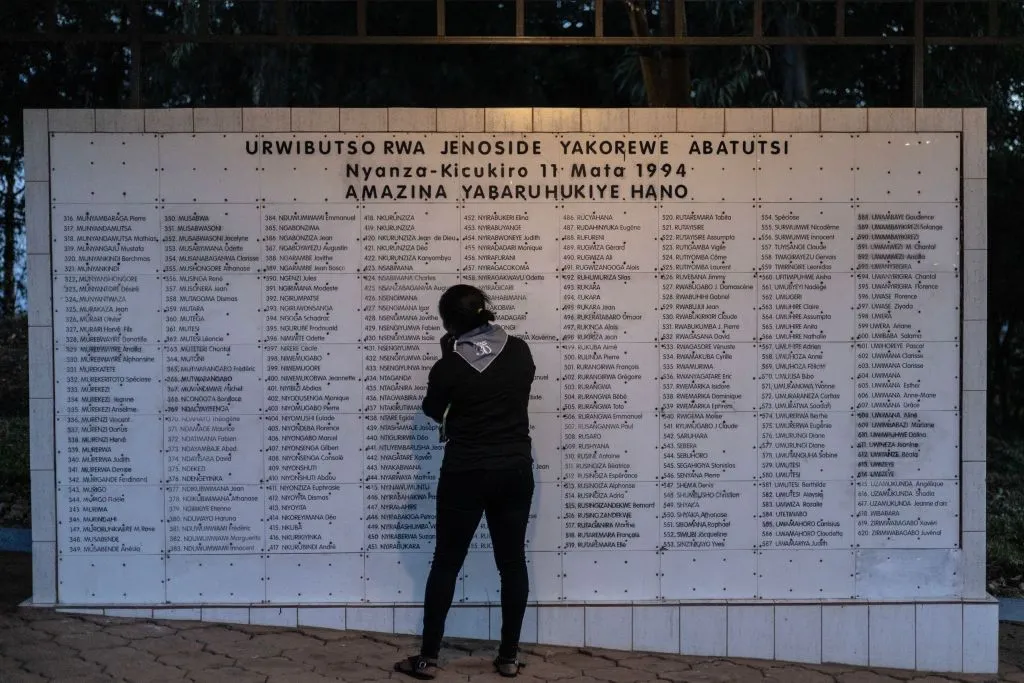French Writer Faces Trial for Controversial Views on Rwandan Genocide
3 min read
A memorial in Rwanda's capital Kigali lists some of the names of the dead

A memorial in Rwanda's capital Kigali lists some of the names of the dead
French-Cameroonian author Charles Onana is set to stand trial in Paris, facing accusations of complicity in minimizing the 1994 Rwandan genocide. During this tragic period, approximately 800,000 Tutsis and moderate Hutus lost their lives within a span of just 100 days.
Onana stirred controversy five years ago with a book in which he labeled the notion that the Hutu government orchestrated a genocide as “one of the biggest scams” of the last century. His lawyer, Emmanuel Pire, has emphasized that Onana does not dispute the occurrence of genocide or the targeting of Tutsis. Instead, Pire asserts that the book represents a decade-long research effort by Onana, aimed at unpacking the mechanisms surrounding the genocide before, during, and after the events.
The legal action against Onana, now 60, and his publishing director at Editions du Toucan, Damien Serieyx, stems from a lawsuit filed four years ago by the NGO Survie and the International Federation for Human Rights (FIDH). They allege that Onana’s writings amount to “publicly contesting a crime against humanity.”
This trial marks only the second instance of a case concerning the denial of the Rwandan genocide to be heard in France. Under French law, it is illegal to deny or downplay any genocide recognized by the French government. As such, Onana’s trial is being characterized as “historic” because it will set legal precedents for how similar cases are handled in the future. Camille Lesaffre, campaign manager for Survie, noted that the trial will draw upon existing case law related to Holocaust denial to build their argument.
The context surrounding this trial is further complicated by France’s historical ties to Rwanda. In 2021, President Emmanuel Macron publicly acknowledged France’s failures to prevent the genocide, expressing regret for not having acted on the warnings that preceded the violence. He called for Rwandans to forgive France, claiming that while the country had remained silent about the genocide for too long, it was not complicit in the atrocities committed.
The outcome of Onana’s trial could have significant implications, not only for him personally but also for how France grapples with its past regarding the Rwandan genocide. As discussions around historical accountability continue to evolve, Onana’s case could illuminate the complexities of addressing narratives that challenge widely accepted historical accounts.
Legal experts and human rights advocates are closely watching the proceedings, as they may influence how future cases of genocide denial are treated within French courts. The importance of this trial extends beyond legal ramifications; it also touches upon broader societal questions of memory, truth, and the responsibility of nations in acknowledging and confronting their histories.
In recent years, the discourse surrounding the Rwandan genocide has gained renewed attention, particularly in France, where debates about the country’s colonial past and its role in international conflicts remain deeply contentious. This trial could serve as a catalyst for further dialogue about the responsibilities of individuals and nations in recognizing and rectifying historical injustices.
As Onana prepares to face the court, the implications of his trial extend far beyond his individual case. It underscores the ongoing struggle to confront the legacies of past atrocities and the complexities of historical interpretation. Whether he is found guilty or acquitted, the trial will undoubtedly contribute to the evolving narrative surrounding the Rwandan genocide and France’s role in it, shaping the future of how such significant historical events are understood and discussed.